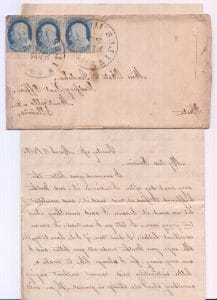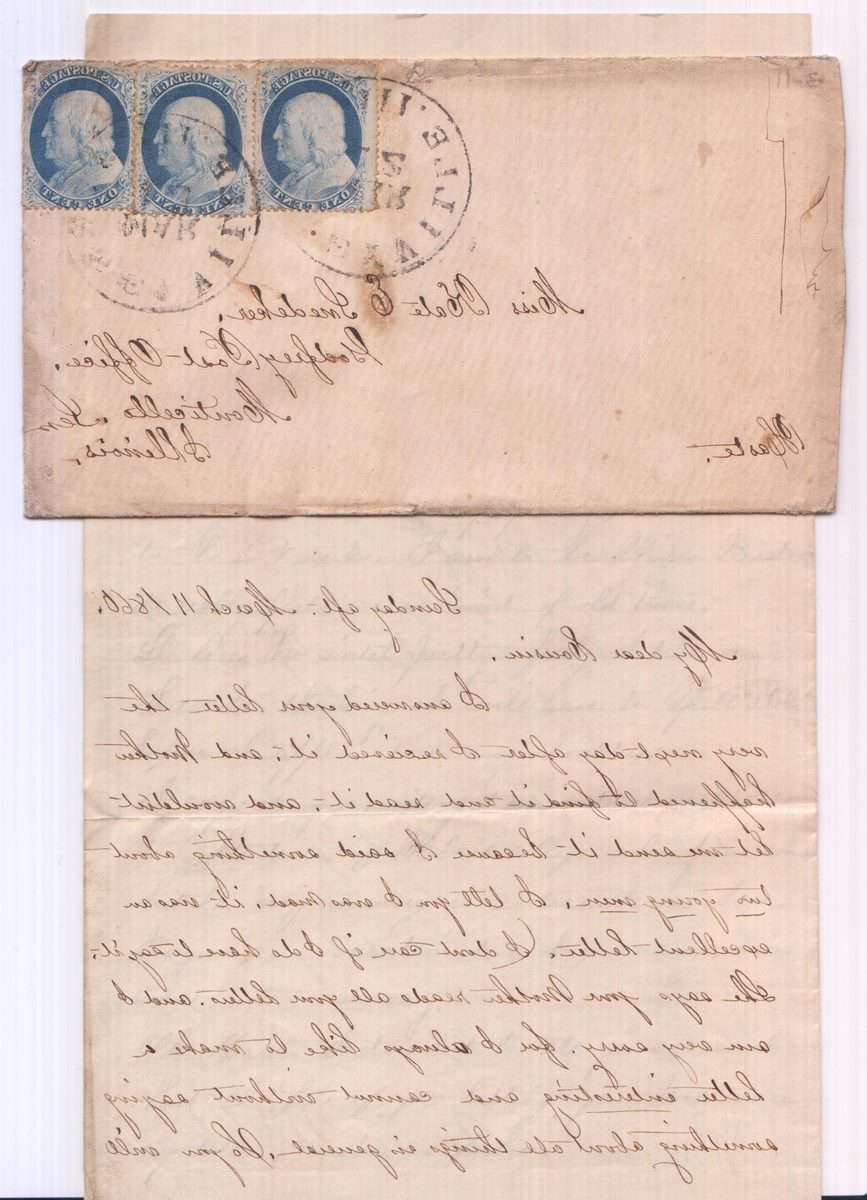
The Iowa Women’s Archives is turning 25! As a part of our celebration, we’re presenting an exhibit, 25 Collections for 25 Years: Selections from the Iowa Women’s Archives, in the Main Library Gallery. Through December 29th, visitors to the library can see selections from a wide array of our collections accompanied by comments from researchers who have used them. Although these comments were edited for the exhibit, we’ll be posting them in full right here on our blog for the rest of the year!

For our first post, we’ll be looking at the Catherine Snedeker Hill Papers, one of the oldest collections in the Iowa Women’s Archives (IWA). Before Snedeker Hill moved to Mt. Pleasant, Iowa in 1870, she attended the Monticello Female Seminary in Monticello, Illinois. Her letters home provide a look into her daily life during the Civil War era.
Susan Stanfield is a professor of history at the University of Texas at El Paso and earned her PhD from the University of Iowa in 2013. Stanfield had this to say about the Catherine Snedeker Hill Papers:
This was the first collection I worked with at the IWA. I was a new graduate student and visiting the archive was part of an assignment for Leslie Schwalm’s 19th Century U.S. Race and Gender course.
I selected this collection because it is one of the earliest in the archive. Although the collection goes beyond her school days, I was initially interested in the education of an antebellum woman from the Midwest. Instead of being sent ‘back East’ to be educated, Catherine Snedeker attended the Monticello Female Seminary in Illinois. The Snedeker Hill papers include a large number of letters written to Catherine while she was attending school. Her senior year at Monticello was 1862, which coincided with the Civil War. It is particularly interesting to see the Civil War through the eyes of a young woman and her family, away from the conflict.One of the things that has made this collection so memorable to me is the chance to see Catherine’s life through that liminal time between being a schoolgirl and being a wife and mother. For Catherine Snedeker that liminal moment spanned almost a decade. For me, it clarified the tenuous position many young women were in—those that left school with no defined role for themselves.
I feel fortunate to have used the Archives as both a student and as an instructor. I used a few collections (unfortunately, not the Catherine Snedeker Hill Papers) in my dissertation. My students in two different classes wrote their final papers from collections found in the IWA. It was exciting to see them work with archival material for the first time. I believe that this project not only introduced them to the practical skills of the historian, but also important critical thinking skills, as they constructed an argument from the various letters, diaries, photographs and other artifacts they encountered.
— Susan Stanfield, University of Texas at El Paso, June 2017
